Turn any article into a podcast. Upgrade now to start listening.
Premium Members can share articles with friends & family to bypass the paywall.
You’re reading The Morning Dispatch, our flagship daily newsletter explaining all the news you need to know today in fewer than 10 minutes. To unlock the full version, become a Dispatch member today.
Interested in hearing your name read on The Dispatch Podcast? We’re shouting out our premium and lifetime members as thanks for being such an integral part of our growth. If you’re interested, please take one minute to fill out this survey.
Happy Thursday! Soccer governing body FIFA announced the creation of a new award yesterday, the “FIFA Peace Prize.” FIFA President Gianni Infantino—a friend of President Donald Trump, who appointed Ivanka Trump as head of a $100 million education project—wouldn’t say who will get the first award on December 5, but we have a guess.
Quick Hits: Today’s Top Stories
- The Supreme Court heard oral arguments Wednesday in a case involving challenges brought against President Donald Trump’s tariffs enacted under the International Emergency Economic Powers Act (IEEPA). Several justices questioned whether the president’s authority is as vast as the White House has argued. Justice Neil Gorsuch said the interpretation of IEEPA’s powers offered by U.S. Solicitor General D. John Sauer could lead to a “one-way ratchet toward the gradual but continual accretion of power in the executive branch.” Chief Justice John Roberts indicated such an argument could violate the “major questions doctrine,” a legal principle that requires Congress to be explicit in delegating power to the executive branch for economic or politically significant decisions. To learn more, read today’s TMD, and Amy Howe’s breakdown of the oral arguments at SCOTUSblog.
- Thirty-six days into the longest government shutdown ever, House Democrats are publicly and privately urging their Senate colleagues not to join Republicans in supporting a temporary government funding bill. They argue Tuesday’s election results show Democrats should remain firm in their health care demands. During a breakfast yesterday with GOP senators, Trump urged them to repeal the filibuster so the chamber can pass a funding bill without Democratic support, but Senate Majority Leader John Thune said there’s not enough support within the GOP to kill the filibuster. With military service members set to miss paychecks on November 15, the U.S. Army provided guidance to soldiers stationed in Germany, informing them of nearby German food banks and other emergency social benefits. On Wednesday, the Federal Aviation Administration (FAA) announced it would decrease air traffic in 40 “high-volume” airports by about 10 percent.
- New York City Mayor-elect Zohran Mamdani announced yesterday that Lina Khan—chair of the Federal Trade Commission under President Joe Biden—will co-lead his transition team. More than 2 million New Yorkers cast their ballots on Tuesday—the highest turnout for a New York City mayoral election since 1969, and almost double the 2021 turnout. Mamdani, 34, was the first NYC mayoral candidate since that 1969 election to win more than 1 million votes. He led in four of the city’s five boroughs, with the strongest support among minority and new-resident voters, though he did poorly with Jewish voters. Hours after he won, a Jewish day school, cemetery, and social services group in Brooklyn were vandalized with spray-painted swastikas, which Mamdani condemned as a “disgusting and heartbreaking act of antisemitism,” and pledged to “always stand steadfast with our Jewish neighbors to root the scourge of antisemitism out of our city.”
- Israeli authorities identified the body Hamas returned Wednesday night as belonging to Joshua Loitu Mollel, a 21-year-old Tanzanian national who worked as an agricultural intern at Kibbutz Nahal Oz and was murdered by Hamas on October 7, 2023. Six hostage bodies remain in Gaza. CNN reported on Wednesday, citing two unnamed Israeli sources, that Israeli intelligence discovered the remains of Lt. Hadar Goldin, an IDF soldier killed by Hamas in 2014, are located in tunnels beneath the southern Gaza City of Rafah, but the IDF disputed the report and said it had “no information” confirming Goldin’s location. Also, in an interview with Israel’s Channel 13, Rom Braslavski—an Israeli held hostage in Gaza who was freed last month—said his captors sexually abused, tortured, and starved him. “I came back from meeting the devil,” he said.
- Ukraine launched drones deep into Russia Wednesday night, attacking targets such as Russia’s southwestern city of Volgograd, the home of a large-scale oil refinery. Russian state-sanctioned media reported that flights in and out of 13 airports in the country were temporarily suspended during the attack. Meanwhile, South African President Cyril Ramaphosa said he received calls from 17 South Africans on Wednesday who had joined mercenary groups to fight in the Ukraine-Russia war, but were now stranded in the Donbas region of Ukraine, an area controlled mainly by Russian forces. It was not immediately clear what led them to Ukraine, or which side they fought for.
Tariff Trade-Offs

President Donald Trump took to Truth Social Tuesday to issue a stark warning: “Tomorrow’s United States Supreme Court case is, literally, LIFE OR DEATH for our Country.” A few weeks earlier, at an October 15 White House event, he had been more specific:
We have a big case coming up at the Supreme Court. And I will tell you, that is one of the most important cases in the history of our country. Because, if we don’t win that case, we will be a weakened, troubled financial mess for many, many years to come. I don’t even know if “survivable” is a good term. And if we do [win], we’re going to be the most powerful, economic country in the world.
The case in question is Learning Resources Inc. v. Trump, one of the clearest challenges yet to Trump’s muscular use of executive authority. The plaintiffs are a consortium of businesses, along with 12 states, led by Oregon, which sued the Trump administration over the president’s use of the International Emergency Economic Powers Act to impose broad tariffs on most of the world. If they win, the legal foundation for Trump’s tariff agenda collapses. If they lose, the White House’s powers are even less restricted than most thought.
It’s one of the most highly anticipated cases of this term of the Supreme Court, which heard oral arguments for the lawsuit yesterday.
Despite his initial musings, Trump did not become the first sitting president to attend Supreme Court oral arguments. But a number of other leading political figures were present in the courtroom, including Treasury Secretary Scott Bessent, multiple senators, and even comedian John Mulaney (who was there to support a friend, who happened to be one of the attorneys for the plaintiffs). Around the country, thousands of business owners—three of whom TMD interviewed—have anxiously watched with more practical considerations in mind, namely their bottom lines.
You are receiving the free, truncated version of The Morning Dispatch. To read the full newsletter—and unlock all of our stories, podcasts, and community benefits—join The Dispatch as a paying member.
Lawyers for the coalition suing the government based their arguments on a curious fact in a case concerning tariffs: The text of IEEPA never mentions them. In fact, no previous president had used the law to impose tariffs since Congress enacted it 48 years ago. But starting in February, Trump declared that the law gave him the power to impose a baseline 10 percent tariff on most imported goods, with higher duties on imports from China, Mexico, and Canada.
IEEPA grants the president the authority to “investigate,” “regulate,” or “prohibit” imports in the event of a national emergency. The administration argued before the court that, because Trump had declared six separate national emergencies relating to illegal immigration, the cross-border drug trade, and trade deficits, he was able to impose taxes on essentially any import, from any country.
“To most people who work in trade and foreign commerce, this looks like a pretty easy case,” Timothy Meyer, a professor in international business law and expert in trade law at Duke University Law School, told TMD. But, he noted, that’s if the court views the case as primarily concerned with tax law. The administration’s hopes for victory, Meyer said, rested on a majority of justices viewing it instead as a foreign policy case, an area in which courts are generally loath to second-guess the president.
The administration’s lawyer, Solicitor General D. John Sauer, rested much of his case on the president’s foreign policy powers, as SCOTUSblog’s Amy Howe reported from the court:
Representing the Trump administration, U.S. Solicitor General D. John Sauer told the justices that IEEPA “confers major powers to address major problems on the President, who is perhaps the most major actor in the realm of foreign affairs.” “The phrase ‘regulate … importation,’” he added, “plainly embraces tariffs, which are among the most traditional and direct methods of regulating importation.”
All three of the court’s liberal justices were skeptical of this claim, along with Justice Neil Gorsuch, wrote Howe:
Gorsuch asked Sauer, on Trump’s theory, “what would prohibit Congress from just abdicating all responsibility to regulate foreign commerce, for that matter, [or] declare war to the President?” And a few minutes later, Gorsuch suggested that one problem with reading a law like IEEPA to give the president broad powers would be that it would create a “one-way ratchet toward the gradual but continual accretion of power in the executive branch” because, once the president had such powers, he could veto any effort by Congress to take them back.
Justices Amy Coney Barrett and John Roberts also seemed to doubt the government’s claims. But a victory for the plaintiffs might not last as long as they hope. If the court rules against the White House, it’s likely that sweeping tariffs will be imposed by hook or by crook. “You should assume they’re here to stay,” Treasury Secretary Scott Bessent said on Tuesday.
The president has broad powers to impose tariffs using laws other than IEEPA. “The president’s ability to impose tariffs going forward is not going to be limited by an adverse ruling,” in this specific case, Meyer said.
Section 232 of the Trade Expansion Act of 1962, which focuses on specific products such as lumber and pharmaceuticals, has few restrictions on the duration or level of tariffs that the president can levy. Section 301 of the Trade Act of 1974, which Trump used in his first term’s brief trade war with China, and has already imposed on Brazil as a backup plan for existing IEEPA tariffs, also allows the executive to target specific countries with tariffs. Section 338 of the Tariff Act of 1930, and Section 122 of the Trade Act of 1974, also give the president the authority to impose tariffs, Meyer noted. But the administration has so far declined to use them, likely because they impose limited restrictions on the president’s freedom to levy import duties.
Mary Carroll Dodd, who owns Red Scout Farm in Black Mountain, North Carolina, and signed onto the lawsuit, told TMD she became aware of the costs of tariffs after she noticed the prices of her supplies were rising, and asked her suppliers why that was happening.
“Our plastic bags that we use for our produce, those have gone up by about 10 percent; we use landscape fabric or woven ground cover, that’s gone up about 10 percent, our insect netting has gone up 10 percent,” Dodd said. “We have a walk-in cooler, and the AC unit replacement, which we replace every couple of years, has gone up by 50 percent.”
Such price increases can be debilitating for small businesses. “Those costs add up quickly when we’re already working with razor-thin margins,” she said.
For Rick Woldenberg, the CEO of Learning Resources, which makes educational toys for children, the decision to sue the government was based on his background in the law. “I’m a lawyer by background, and I have love and respect for the law and understand its role in what we recognize as our American way of life,” he told TMD.“I could not abide waiting for someone else to save me.”
Woldenberg’s company also didn’t have much time to wait—he told TMD that Learning Resources has had to take out a $14 million loan for projected tariff-related expenses over the next year.
But some smaller business owners are stuck thinking in even shorter time frames. Erik Bigglestone, who owns the board game store Games of Berkeley, told TMD that small brick-and-mortar stores often don’t have the resources to prepare for price hikes. Over the summer, many game suppliers warned retailers that prices would have to increase in the autumn, he said, and told customers to purchase as much inventory as possible before they did. But “a lot of businesses, ours included, weren’t in a position where we could afford to do that,” he said. Instead, his company has leaned into alternative means of competing with larger retailers, such as selling vintage figurines and rule sets.
As many businesses face risks from the U.S.’s new tariff regime, Trump has decided the country is staring down existential stakes. Others put it in less stark terms.
“I’m not interested in making Mr. Trump the bad guy, I don’t think it’s necessary,” Woldenberg said. “This is a question of what is the law?”
Today’s Must-Read
On Saturday, May 27, 2006, then-Vice President Dick Cheney traveled to Wyoming to give one of the most important speeches of the many thousands he would deliver over the course of his 84-year life. He didn’t speak about the events occurring in Iraq or the simmering tensions with Iran. Instead, while addressing the 340 graduates of Natrona County High School—his alma mater and that of his wife, Lynne—the vice president delivered a speech that he had written aboard Air Force Two en route to Casper. “Stay focused on the job you have, not the next job you might want … Do the work in front of you. Try to find ways to make yourself indispensable. And I can almost guarantee that recognition, advancement, and other good things will follow.” Over the course of his nearly four decades at the highest levels of the U.S. government, Cheney lived this mantra.
Toeing the Company Line
Speaking Lies to Power
A lot of bravery is cheap.
It’s the (Not Caring About the) Economy, Stupid
Lessons from a blue wave.
Supreme Court Greets Trump’s Sweeping Tariffs With Skepticism
The justices scrutinized the administration’s claim to near-unlimited tariff authority.
In Other News
Today in America:
- Democratic Rep. Jared Golden of Maine—who over his four terms in Congress maintained a moderate voting track record and holds the most Republican-leaning seat held by a Democrat—announced in an op-ed that he would not seek re-election in 2026, citing “frequent threats” made against him.
- California Republicans sued Gov. Gavin Newsom and California Secretary of State Shirley Weber on Wednesday to block a Democratic-backed congressional redistricting map, which voters approved Tuesday in a statewide referendum.
- Federal agents arrested three more suspects—one Michigan man, and two New Jersey residents—they believed to be involved in an Islamic State-linked terror plot planned for October 31. Two earlier suspects were arrested last week.
- During a Wednesday hearing related to the Justice Department’s case against former FBI Director James Comey, a federal judge criticized the manner in which federal prosecutors gathered evidence.
- A State Department official told the Washington Examiner that, so far in Trump’s second term, the agency has revoked about 80,000 non-immigrant visas.
- Local Chicago officials and news outlets reported Wednesday that Immigration and Customs Enforcement agents entered a private preschool and arrested a teacher on the premises.
Around the World:
- Filipino authorities reported that at least 114 people have been killed so far by Typhoon Kalmaegi, which made landfall on Tuesday, while 127 others remain missing.
- Cameroon security forces have killed at least 48 people following protests against the recent re-election of 92-year-old President Paul Biya.
- Japan deployed military troops on Wednesday to control the country’s rising bear population in the northern Japanese region of Akita.
- The Financial Timesreported yesterday that Argentine President Javier Milei will not approve a floating exchange rate for the Argentine peso.
On the Money:
- France’s Finance Ministry shared on Wednesday that it found “large quantities” of weapons on the Chinese-based e-commerce platform Shein, including firearms and machetes.
- Bloomberg reported on Wednesday that Apple is nearing a deal to use Google’s Gemini AI in Siri for about $1 billion annually.
- Quantum computing company Quantinuum unveiled a new advanced supercomputer on Wednesday, Helios.
- Tesla board members urged shareholders to approve a pay package worth up to $1 trillion for CEO Elon Musk or risk his potential departure. Shareholders will vote today.
Worth Your Time:
- Alison Killing breaks down how Saudi Arabia’s utopia city project collapsed. (Financial Times)
- Nathan J. Robinson argues Democrats should “follow Mamdani’s example.” (Current Affairs)
- The Washington Post editorial board sees Tuesday’s election results as primarily a rebuke of Trump’s excesses. (Washington Post)
- Matthew Yglesias and Halina Bennet have 13 takeaways from Tuesday’s elections. (Slow Boring)
- Jerusalem Demsas, Jordan Weissmann, Lakshya Jain, and Kelsey Piper have 16 takeaways from Tuesday’s elections. (The Argument)
- The short-listed wildlife images from 2025 Close-Up Photographer of the Year. (The Atlantic)
Presented Without Comment
Bloomberg: OpenAI CFO Says Bubble-Wary Market Needs More AI ‘Exuberance’
OpenAI Chief Financial Officer Sarah Friar suggested the market is overly focused on anxiety about a possible bubble in the artificial intelligence sector and should muster more “exuberance” about the technology’s potential.
“I don’t think there’s enough exuberance about AI, when I think about the actual practical implications and what it can do for individuals,” Friar said in an onstage interview at the Wall Street Journal’s Tech Live conference in California on Wednesday. “We should keep running at it.”
Also Presented Without Comment
New York Times: Irish Police Got a Call About a Lion. It Was Actually a Dog Named Mouse.
Also Also Presented Without Comment
BBC: Council To Edit Meeting After Camera Left On for Toilet Trip
Let Us Know
Have any thoughts or questions about today’s newsletter? Drop us a note in the comments or by emailing us at tmd.questions@thedispatch.com. We read every submission, and your message could be featured in an upcoming “Behind the Scenes” segment.
Have any thoughts or questions about today’s newsletter? Become a member to unlock commenting privileges and access to a members-only email address. We read every submission, and answer questions in the following edition of TMD.

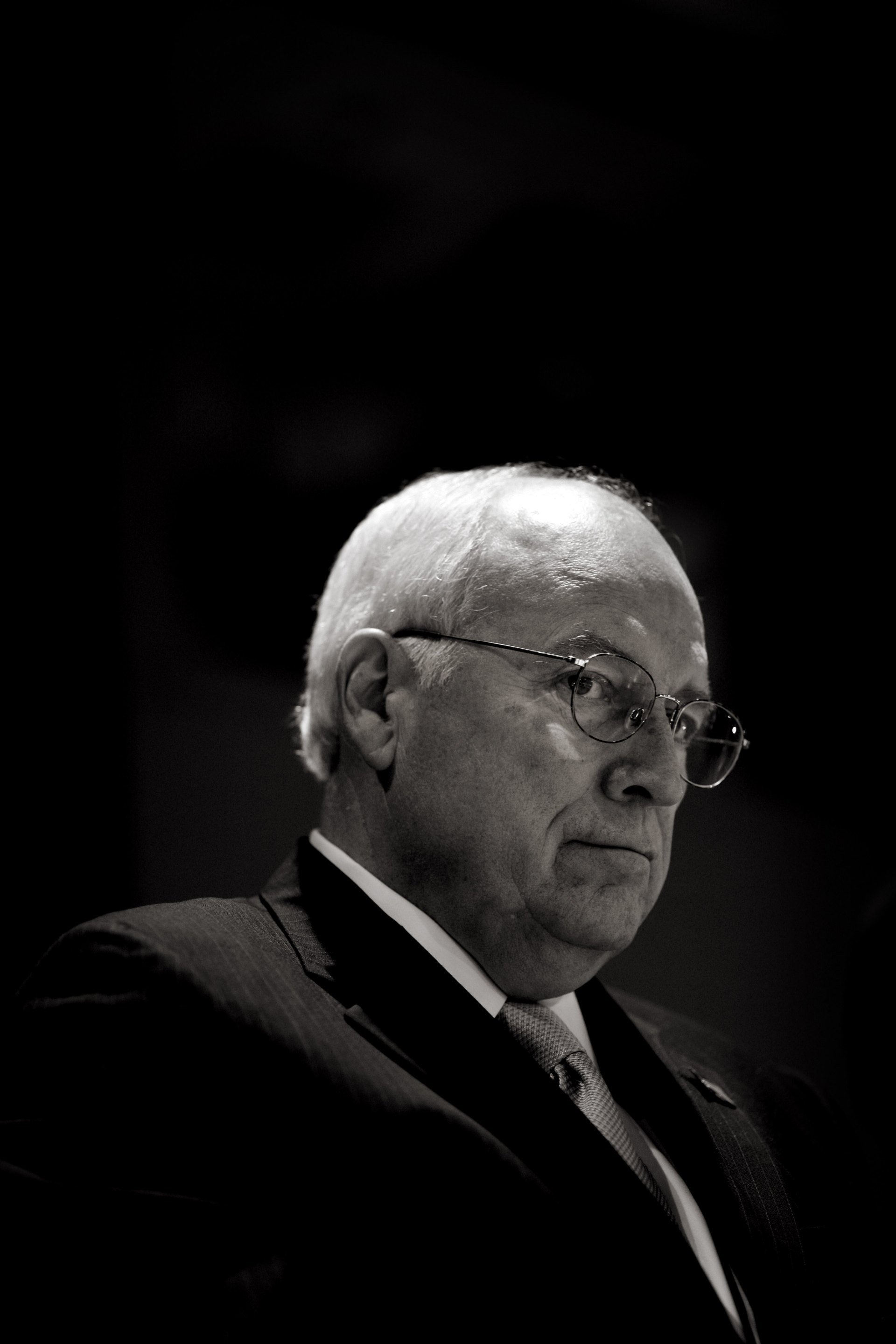
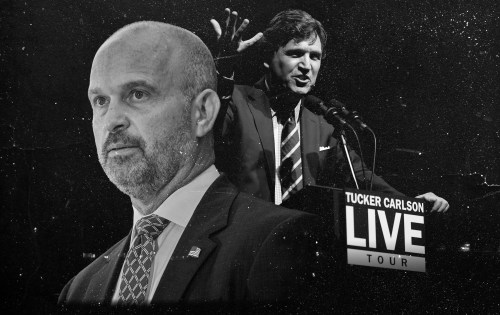
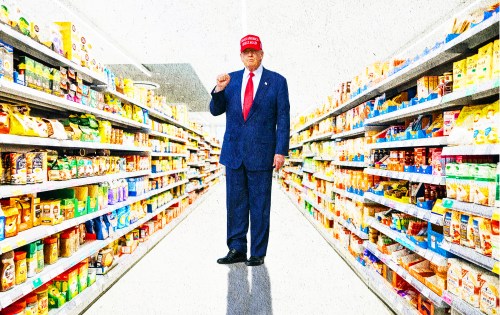
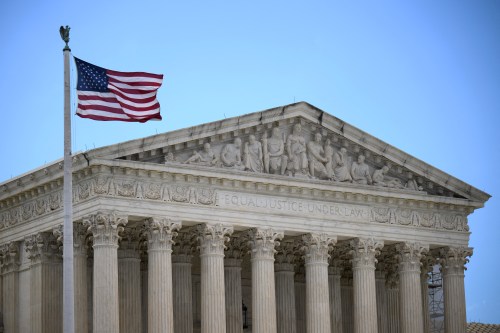






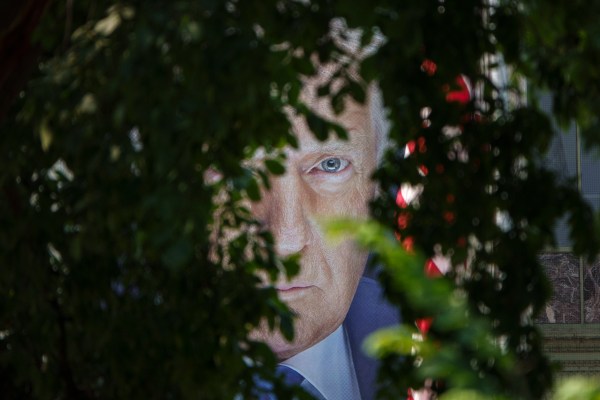
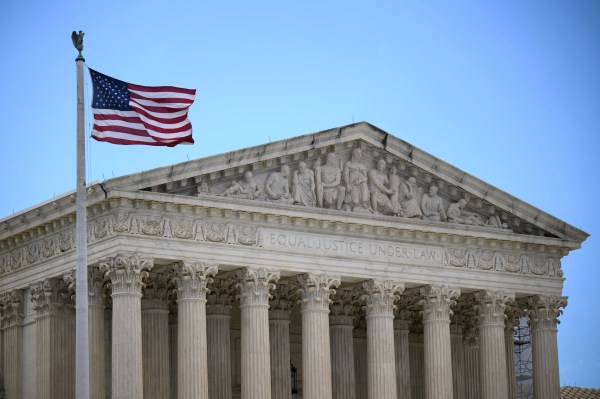
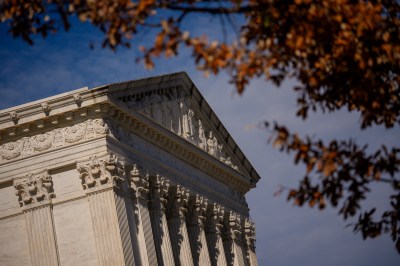
Please note that we at The Dispatch hold ourselves, our work, and our commenters to a higher standard than other places on the internet. We welcome comments that foster genuine debate or discussion—including comments critical of us or our work—but responses that include ad hominem attacks on fellow Dispatch members or are intended to stoke fear and anger may be moderated.
With your membership, you only have the ability to comment on The Morning Dispatch articles. Consider upgrading to join the conversation everywhere.